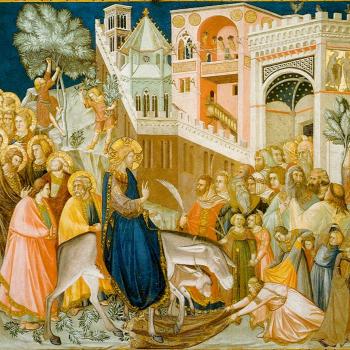The efforts to treat patients—even efforts that prove futile—provide physicians with information that can eventually lead to successful procedures that save and lengthen lives. Protocols for treating injuries and illnesses are almost never developed whole cloth in a laboratory and then brought to bear on human needs. Instead, they are tested—often with uneven success at first—in the lives of real people with critical needs. I know this, thanks to my own experience—thanks to the experience of families, friends, and counselees—and thanks to the work of physicians and biostatisticians with whom I have worked at the National Institutes of Health.
Unfortunately, all too often the public debate over healthcare seems to suggest that experimental procedures are simply a waste, or (worse yet) a matter of desperately ill people consuming resources that would be available to others were it not for their selfishness. But neither illness, nor the progress of medicine is as simple as it seems. There are generations of patients who—thanks not just to their desire to live, but to their courage—have added to our understanding of illnesses that rob the larger human race of life and creativity.
Think, for example, of the illnesses that were once "wastefully" treated that now yield health and some leverage against the onslaught of disease: blue babies who had heart valve defects; bypass and transplant patients; the victims of polio, tuberculosis, AIDS, breast, and prostate cancer. The list is endless and the progress made explains why we no longer rely on bleedings or the application of leeches, why we no longer operate on patients who are conscious and writhing in pain, why infection rates are drastically lower than they once were, and why (generally) life expectancy is longer.
In truth, good medicine is wasteful. Wasteful medicine adds to our knowledge of illnesses. It improves treatment. It saves lives. It is, in fact, at its wasteful frontier where the medical battle is fought to broaden and deepen the knowledge that we bring to bear on human suffering.
That is why the logic that argues we should blindly apply the measures of life expectancy and the reliability of a technique to bear on the medicine we practice is problematic. To close the wasteful frontier of medicine also forecloses on one of the few places where human need and the progress of medicine meet. It is the place where, as Siddhartha Mukherjee observes in his masterful work on the biography of cancer, the courage of the patients—more than that of the physicians—engage in a battle not just for their own lives, but for the lives of countless others.
Do we need a conversation about the cost of healthcare or the best means by which to make it available? Of course. But the last thing we need is a mindless, polarized debate that misrepresents the complexity of human suffering and the progress of medicine in the name of scoring political points.
And after we have had those conversations, this truth will remain: The battle against disease and illness will never be resolved legislatively. It will continue to be fought by patients and their physicians who struggle against unseen enemies along an ill-defined front, with weapons that are used in the battle long before they are thoroughly tested or proven, and with little or no guarantee of success.
And how is this a spiritual matter? The Christian tradition holds that life is God's gift and that it is good. It holds that God is actively and passionately engaged in the world in which we live. Because we believe both things to be true there is no easy line to be drawn between this life and the next. Life (as Christians understand it) is not just about this world or about our ability to survive. But by the same token, eternal life does not await the next world. It begins now.
So, we are obliged to treat this life (as the next) reverently: as a gift given to us by God, as a gift nurtured in us by God, and as a gift held in common between us as human beings. Life is not ours to hold onto, desperately or fearfully. But it is not ours to throw away. And the complex intersection of our suffering and the learning that occurs when people do suffer demonstrates in some ways, like no other, that the choice to live or die is neither simple, nor is it finally ours.
Don't expect legislation to resolve the questions that lie at that sacred place where the life begun in this world yields to its continuation in the next. And, if you take interest in the debate, resist the simplistic arguments that make light of the pain and courage of those who have already navigated those difficult waters, whatever choice they may have made. You will find that one day you will need the same grace that they have already longed for and found. You might also discover that you are dependent upon the knowledge that physicians acquired at their expense.
6/19/2011 4:00:00 AM





